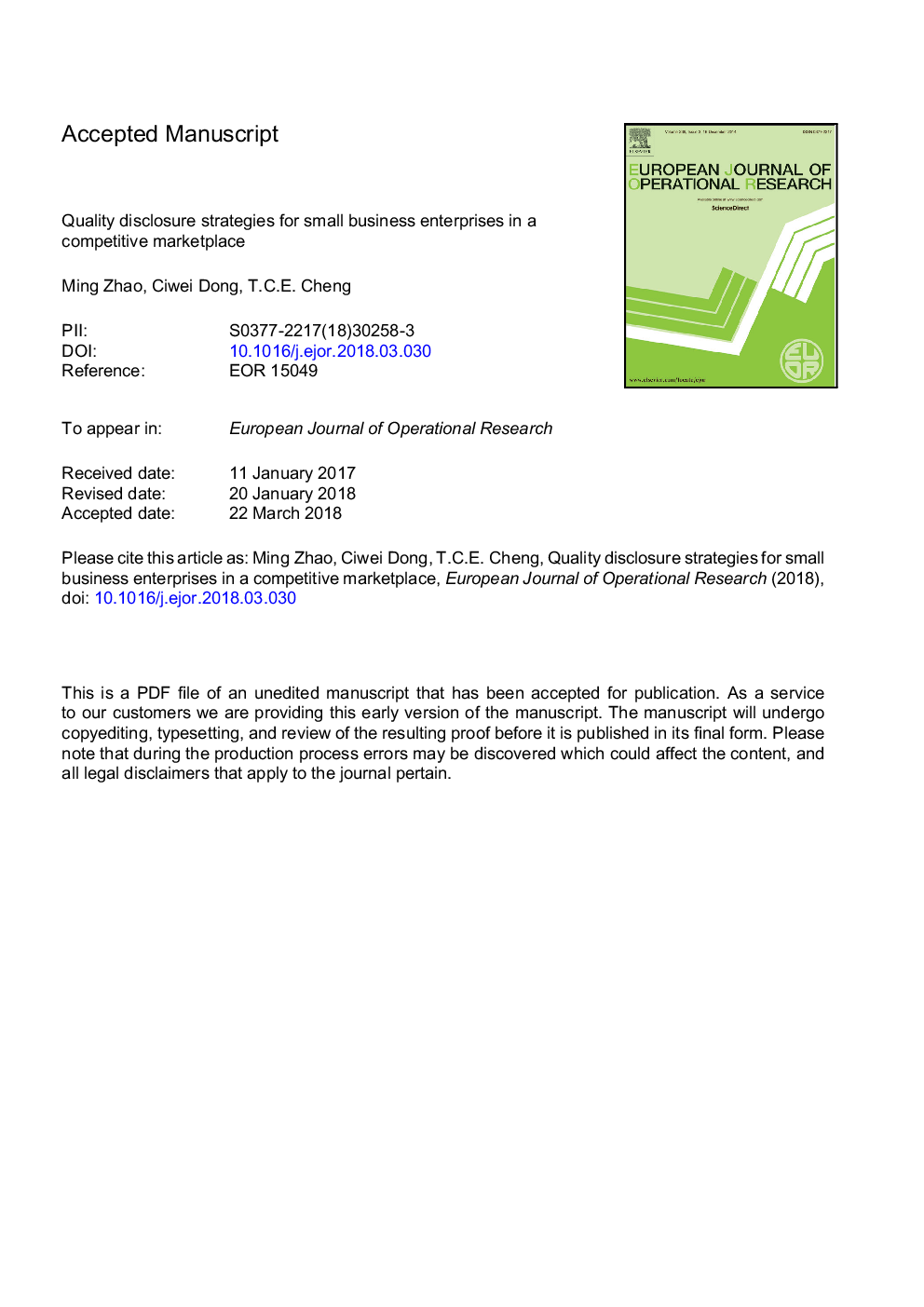| Article ID | Journal | Published Year | Pages | File Type |
|---|---|---|---|---|
| 6894636 | European Journal of Operational Research | 2018 | 35 Pages |
Abstract
In this paper, we use a game-theoretic approach to investigate quality disclosure strategies for small business enterprises (SBEs). There are two SBEs with heterogeneous product quality competing in a competitive marketplace. In the first stage of the game, each SBE decides whether to disclose its quality information to customers through the retailer. In the second stage of the game, depending on the quality disclosure strategies chosen, the SBEs decide the selling prices, or they decide the wholesale prices and the retailer decides the selling prices. We derive the optimal disclosure and pricing strategies for the SBEs. We show that in equilibrium the high-quality SBE may choose not to disclose its quality and the low-quality SBE may choose to disclose its quality to customers through the retailer, which depends on the customers' common prior belief regarding the quality of the product in the market. Besides, the high-quality SBE has a higher selling price and will obtain a higher profit than the low-quality SBE, even for the case where the customers only know the true quality of one SBE. However, when only one SBE discloses its quality to customers, the selling price of the high-quality product with disclosed quality information may be lower than that without quality information, due to the competition and information discourse mechanism. Moreover, we derive the results on how the optimal selling prices, wholesale prices, retailer's profit and SBEs' profits change when the customers' common prior belief changes, and generate managerial insights of the research findings.
Related Topics
Physical Sciences and Engineering
Computer Science
Computer Science (General)
Authors
Ming Zhao, Ciwei Dong, T.C.E. Cheng,
